

| Region rejsu : UAE / Zatoka Perska, Persian Gulf |
| Firma : Costa Cruises |
| Statek : Costa Smeralda |
| Data rozpoczęcia : sob. 19 gru 2026 |
| Data zakończenia : sob. 26 gru 2026 |
| Liczba nocy : 7 nocy |
| Dzień | Data | Port | Wypłynięcie | Odpłynięcie |
|---|---|---|---|---|
| 1 | 19.12 sob. | Dubai / UAE | ||
| 2 | 20.12 niedz. | Dubai / UAE | ||
| 3 | 21.12 pon. | Dubai / UAE | 13:00 | |
| 3 | 21.12 pon. | 25,6 N 56,9 E - Zatoka Omańska | 23:00 | 23:59 |
| 4 | 22.12 wt. | Muskat / Oman | 08:30 | 19:00 |
| 4 | 22.12 wt. | Zatoka Omańska | 23:30 | |
| 5 | 23.12 śr. | Zatoka Omańska | 01:00 | |
| 6 | 24.12 czw. | Doha / Katar | 07:00 | 18:00 |
| 7 | 25.12 pt. | Abu Zabi / UAE | 07:30 | 22:00 |
| 8 | 26.12 sob. | Dubai / UAE | 07:00 |
Zakwaterowanie w kabinie wybranej kategorii
Posiłki w restauracji (bufecie) w systemie „bufetowym”, obejmujące śniadania, obiady i kolacje, a także przekąski w kawiarni i pizzerii przez cały dzień. Woda, soki, herbata i kawa z automatów są dostępne w bufecie bezpłatnie przez całą dobę.
Posiłki w restauracji głównej „à la carte”. Z reguły wszystkie liniowce mają dwie lub trzy restauracje główne z menu. Dania w tych restauracjach są bardziej wyrafinowane i różnorodne niż w bufecie. Napoje zamawiane są za dodatkową opłatą.
Rozrywka na pokładzie, taka jak animacje, warsztaty mistrzowskie, aerobik, wieczorne występy w teatrze, muzyka na żywo w barach, dyskoteki.
Dostęp do wszystkich ogólnodostępnych części liniowca: centrum fitness (siłownia), baseny, jacuzzi przy basenach, park wodny, biblioteka, mini kluby dla dzieci.
Usługi edukatorów w mini klubach dla dzieci w wieku od 6 miesięcy do 17 lat
Gry na boiskach sportowych, w tym tenis, mini piłka nożna, koszykówka, badminton, mini golf i inne.
Korzystanie ze sprzętu wodnego podczas wsiadania i wysiadania w portach, jeśli statek nie wpływa do portu.
Przewóz bagażu na początku i na końcu rejsu.
W zależności od kategorii kabiny, mogą Państwo otrzymać bezpłatne usługi dodatkowe. Na przykład napoje ALL INCLUSIVE w barach i restauracjach, serwis kabinowy z bezpłatną dostawą 24 godziny na dobę, korzystanie z centrum spa.
Ważne: Costa zastrzega sobie prawo do zmiany kategorii kabiny na tę samą lub wyższą. Costa dołoży jednak wszelkich starań, aby uniknąć zmiany kategorii.
Dodatkowe koszty:
Opłata serwisowa w wysokości 11 euro za noc od osoby.
Ubezpieczenie (ubezpieczenie medyczne, ubezpieczenie od odwołania podróży)
Bilet lotniczy, transport kolejowy (koszty transportu do portu wypłynięcia i z portu przybycia statku)
Transfery (z lotniska/dworca kolejowego do portu morskiego i z powrotem)
Wycieczki
Rezerwacja hotelu przed i po rejsie, jeśli chcesz przedłużyć wakacje na lądzie.
Dodatkowo płatne na statku:
Wizyty w alternatywnych barach i restauracjach
Usługi spa, fryzjerzy, salony kosmetyczne
Usługi medyczne
Pranie, prasowanie
Kasyno
Automaty do gier itp., w zależności od konkretnego statku.
Za każdy zakup towarów na statku w barach, restauracjach, sklepach oraz usługi spa, fryzjera itp. pobierana jest dodatkowa opłata serwisowa, która wynosi średnio 15% ceny zakupu.
Plany taryfowe Costa Cruises
Costa oferuje trzy opcje taryfowe, pozwalając każdemu gościowi wybrać odpowiedni poziom komfortu i usług wliczonych w cenę:
Mój Rejs — Taryfa Podstawowa (Obecnie na stronie internetowej można zarezerwować tylko Mój Rejs).
Inne opcje taryfowe (All-Inclusive i Super All-Inclusive) są dostępne na indywidualne zamówienie u agenta podróży.
Idealne dla podróżnych ceniących elastyczność i chcących wybrać tylko te usługi, których potrzebują.
W cenie:
Zakwaterowanie w wybranej kabinie
Pełne wyżywienie: śniadanie, obiad, kolacja i przekąski
Gromadzenie punktów Costa Club
All-Inclusive — Wszystko w cenie
Komfortowa taryfa obejmująca pakiet Moje Napoje. Idealna dla tych, którzy chcą znać wszystkie swoje wydatki z wyprzedzeniem.
W cenie:
Zakwaterowanie w wybranej kabinie
Pełne wyżywienie: śniadanie, obiad, kolacja i przekąski
Pakiet Moje Napoje: nielimitowane napoje na kieliszki — wino, piwo, whisky, koktajle, napoje gorące, soki i napoje bezalkoholowe
1 butelka wody 0,5 l dziennie na osobę
Wybór godziny kolacji
Punkty Costa Club + zniżka na kolejny rejs
Jeśli Twój klient wybierze Apartament, w cenie zawarte są również:
Pakiet My Drinks Plus (zawiera napoje premium i minibar)
Całodobowa obsługa osobistego lokaja
Super All-Inclusive — Maksymalny Komfort
Najbardziej kompleksowa oferta, obejmująca napoje, posiłki i wycieczki z wielojęzycznym przewodnikiem.
W cenie:
Zakwaterowanie w wybranej kabinie
Pełne wyżywienie: śniadanie, obiad, kolacja i przekąski
Pakiet My Drinks: szeroki wybór napojów alkoholowych i bezalkoholowych
1 butelka wody 0,5 l dziennie na osobę
Pakiet My Explorations: zestaw wycieczek + zniżki na dodatkowe wycieczki
Elastyczne warunki anulacji
Wybór godziny kolacji
Punkty Costa Club + zniżka na kolejny rejs
Jeśli Twój klient wybierze Apartament, w cenie zawarte są również:
Pakiet My Drinks Plus (zawiera napoje premium) i minibar)
Całodobowa obsługa osobistego lokaja
Costa Cruises Beverage Packages
Choose the Best Package
My Soft Drinks
Enjoy coffee, juices, soft drinks, and alcohol-free cocktails.
Included:
Non-Alcoholic Drinks at the Bar: Soda, juices (various flavors), tonic, lemonade, iced tea, syrup with water per glass, mineral water (still or sparkling).
Hot Drinks: Espresso, decaffeinated coffee, iced coffee, coffee shaker, cappuccino, coffee with liqueur, selection of teas and herbal infusions.
From Chocolate Bar (if available on the ship): Hot or cold chocolate (various flavors).
Alcohol-Free Cocktails: All from the onboard menu.
Not Included: Cocktails, premium drinks, minibar drinks.
My Drinks
If you want more, add a wide selection of cocktails.
Included:
Drinks with Meals.
Drinks at the Bar.
Cocktails.
Aperitifs and Vermouths: All from the onboard menu.
Beer: Draft beer, non-alcoholic beer.
Non-Alcoholic Drinks and Mineral Water: Soda, juices (various flavors), tonic, lemonade, iced tea, syrup with water per glass, mineral water (still or sparkling), one 0.5L bottle of mineral water per adult per day in the restaurant and all bars.
Hot Drinks: Espresso, decaffeinated coffee, iced coffee, coffee shaker, cappuccino, coffee with liqueur, selection of teas and herbal infusions.
From Chocolate Bar (if available): Hot or cold chocolate (various flavors).
Wines by the Glass: White wines (Pinot Grigio, Chardonnay, Trebbiano); red wines (Merlot, Cabernet, Nero d’Avola); rosé wines (Rosato Puglia).
Whiskies: Ballantines, J&B, Johnnie Walker Red, Jim Beam, Canadian Club, Jameson, Dewar’s White Label, Crown Royal.
Other Distillates: Grappa (Grappa Moscato, Sènjana Gentile); cognac (Cognac VS); gin (Beefeater, Gordon’s); vodka (Skyy, Stolichnaya); rum (Bacardi Silver, Bacardi Gold, Bacardi Limón); brandy (Vecchia Romagna E.N., Fundador); tequila (Jose Cuervo).
Liqueur Wines: Harveys Bristol Cream, Sandeman Ruby Port.
Bitters and Liqueurs: All from the onboard menu.
Bacardi Breezer: All from the onboard menu.
Cocktails: Whisky Cream Banana Colada, Piña Colada, Kiwi Colada, Strawberry Daiquiri, Banana Daiquiri, Planter’s Punch, Mai Tai, Bahama Mama, Frozen Margarita, Mojito, Caipirinha, Caipiroska, Caipirissima, Sidecar, Between the Sheets, Martini, Negroni, Americano, Campari shakerato, Aperol Spritz, Black Russian, White Russian, Pink Lady, Rossini, Bellini, Costa Dream, Costa Sea, Costa Wind, Costa Sky, Ginger Mojito, Mango Caipirinha.
Alcohol-Free Cocktails: Colibrì, Fruit Punch, Pink Panther, Squok, Cosmopolitan Long Virgin, Mojito Zero, Strawberry Caipiroska Zero, Sex on the Beach Zero, Passion Fruit Caipiroska Zero.
Mixed Drinks: Gin and tonic, vodka and tonic, whisky with cola, vodka with lemon, Cuba Libre.
Not Included: Premium drinks, minibar drinks.
My Drinks Plus
If you want the ultimate experience, add prestigious labels, plus soft drinks, bottled water and beer, and all minibar drinks.
Included:
Drinks with Meals.
Drinks at the Bar.
Cocktails.
Premium Drinks.
Drinks from the Minibar.
Unlimited consumption of all drinks from the bar menu up to 9 euros/10 dollars.
Molecular cocktails, solid cocktails, and premium drinks.
Assortment of beers, aperitifs, and distillates.
Special coffees for sweet lovers.
Drinks from the minibar or served in the cabin, plus the finest labels, bottled water, and beer.
My Drinks Young (for Children)
A wide selection of drinks per glass: from soda to smoothies and chocolate.
Included:
Juices: Pear, peach, apricot, pineapple, orange, grapefruit.
Non-Alcoholic Drinks and Mineral Water: Soda, juices (various flavors), tonic, lemonade, iced tea, syrup with water per glass, mineral water (still or sparkling).
Alcohol-Free Cocktails: Colibrì, Fruit Punch, Pink Panther, Squok, Cosmopolitan Long Virgin, Mojito Zero, Strawberry Caipiroska Zero, Sex on the Beach Zero, Passion Fruit Caipiroska Zero.
Hot Drinks: Espresso, decaffeinated coffee, iced coffee, coffee shaker, cappuccino, selection of teas and herbal infusions.
From Chocolate Bar (if available): Hot or cold chocolate (various flavors).
*Available only for children aged 4 to 17. Free for children under 4. **Cocktails available only in combination with the My Drinks package.
Beverage Package Conditions
Beverage packages are personal, non-transferable, and cannot be shared. They must be purchased by all guests in the same cabin or with the same booking number and/or traveling together. Packages including alcoholic drinks are intended only for guests aged 18+ (21 in the USA). They include a selection of alcoholic and non-alcoholic drinks served by the glass. Whole bottles of wine or spirits are not served. Excluded are minibar products, in-cabin service, and prestigious brands (except for My Drinks Plus). Service will be denied to intoxicated guests. If guests abuse the beverage package by sharing it with those who haven’t purchased it, Costa will revoke the privilege. Beverage packages are valid on embarkation and disembarkation days. My Drinks Young: Available only in combination with another adult beverage package. Intended for children and teens aged 4 to 17. Free for children under 4. Includes a selection of non-alcoholic drinks per glass. Excluded are minibar products and in-cabin service (except in combination with My Drinks Plus).
Aby potwierdzić rezerwację, wymagany jest minimalny depozyt w wysokości 30% ceny rejsu.
Ostateczną płatność należy uiścić najpóźniej na 60 dni przed rozpoczęciem rejsu.
Po otrzymaniu depozytu lub pełnej płatności (w zależności od daty rezerwacji) otrzymają Państwo potwierdzenie.
Karty pokładowe wysyłane są 14 dni przed rozpoczęciem rejsu, po zakończeniu odprawy online.
Metody płatności:
Na fakturę
Kartą kredytową/debetową
Kary za anulowanie
Ceny MyCruise, All Inclusive, Super All Inclusive:
60 dni lub więcej przed rejsem – 100 EUR za osobę zatrzymane
59–40 dni przed rejsem – 30% całkowitego kosztu
39–25 dni przed rejsem – 55% całkowitego kosztu
24–16 dni przed rejsem – 80% całkowitego kosztu
15 dni lub mniej przed rejsem – 100% całkowitego kosztu
Cena Last Minute:
100% całkowitego kosztu rejsu pobierane od momentu rezerwacji
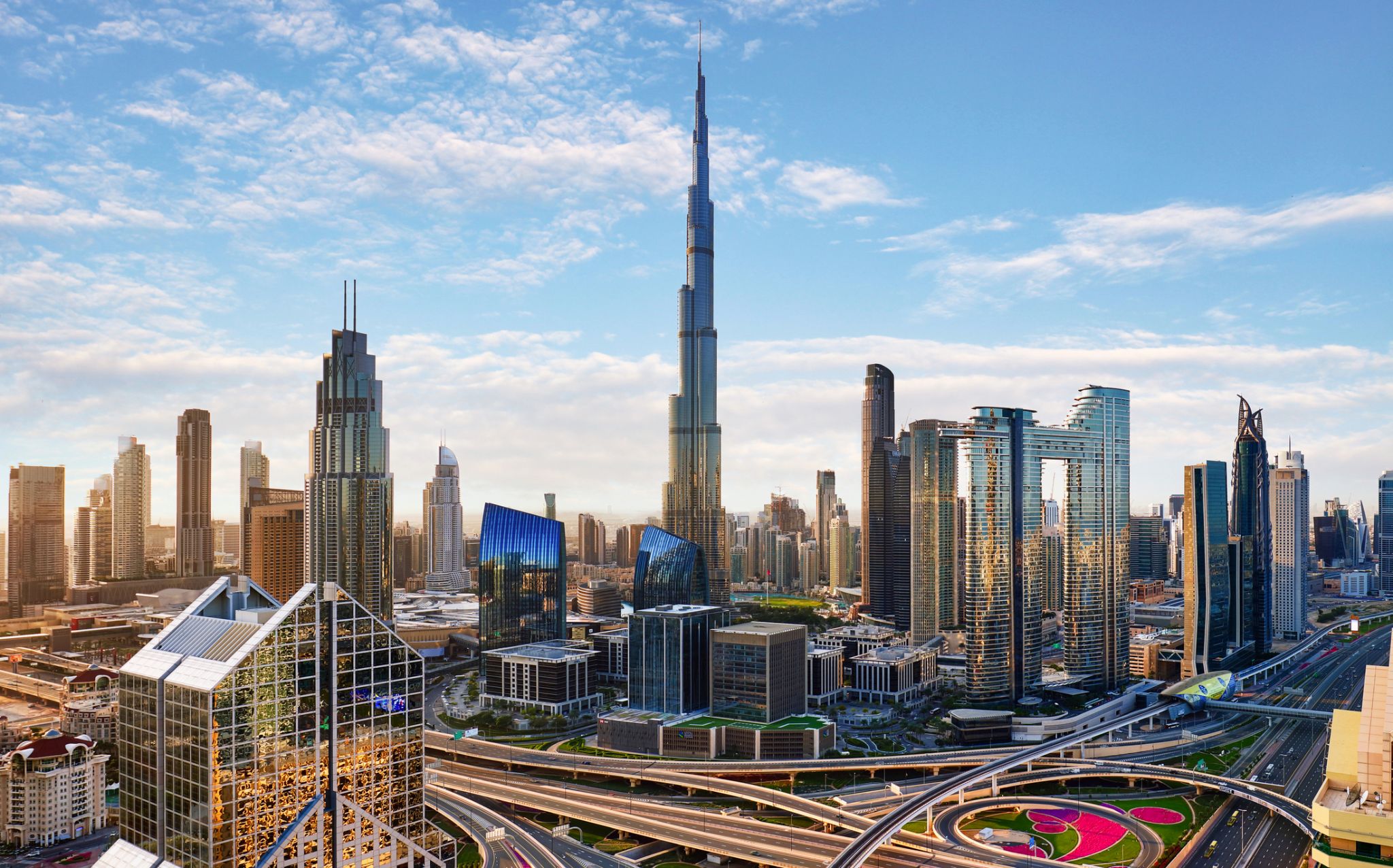
Dubai is the largest and most populous cityin the United Arab Emirates (UAE). On the southeast coast of the Persian Gulf, it is the capital of the Emirate of Dubai, one of the seven emirates that make up the country.
Dubai is a global city and business hub of the Middle East. It is also a major global transport hub for passengers and cargo. Oil revenue helped accelerate the development of the city, which was already a major mercantile hub, but Dubai's oil reserves are limited and production levels are low: today, less than 5% of the emirate's revenue comes from oil. A growing centre for regional and international trade since the early 20th century, Dubai's economy today relies on revenues from trade, tourism, aviation, real estate, and financial services.
Dubai has attracted world attention through large construction projects and sports events, in particular the world's tallest building, the Burj Khalifa. As of 2012, Dubai was the most expensive city in the Middle East. In 2014, Dubai's hotel rooms were rated as the second most expensive in the world.

Dubai is the largest and most populous cityin the United Arab Emirates (UAE). On the southeast coast of the Persian Gulf, it is the capital of the Emirate of Dubai, one of the seven emirates that make up the country.
Dubai is a global city and business hub of the Middle East. It is also a major global transport hub for passengers and cargo. Oil revenue helped accelerate the development of the city, which was already a major mercantile hub, but Dubai's oil reserves are limited and production levels are low: today, less than 5% of the emirate's revenue comes from oil. A growing centre for regional and international trade since the early 20th century, Dubai's economy today relies on revenues from trade, tourism, aviation, real estate, and financial services.
Dubai has attracted world attention through large construction projects and sports events, in particular the world's tallest building, the Burj Khalifa. As of 2012, Dubai was the most expensive city in the Middle East. In 2014, Dubai's hotel rooms were rated as the second most expensive in the world.

Dubai is the largest and most populous cityin the United Arab Emirates (UAE). On the southeast coast of the Persian Gulf, it is the capital of the Emirate of Dubai, one of the seven emirates that make up the country.
Dubai is a global city and business hub of the Middle East. It is also a major global transport hub for passengers and cargo. Oil revenue helped accelerate the development of the city, which was already a major mercantile hub, but Dubai's oil reserves are limited and production levels are low: today, less than 5% of the emirate's revenue comes from oil. A growing centre for regional and international trade since the early 20th century, Dubai's economy today relies on revenues from trade, tourism, aviation, real estate, and financial services.
Dubai has attracted world attention through large construction projects and sports events, in particular the world's tallest building, the Burj Khalifa. As of 2012, Dubai was the most expensive city in the Middle East. In 2014, Dubai's hotel rooms were rated as the second most expensive in the world.
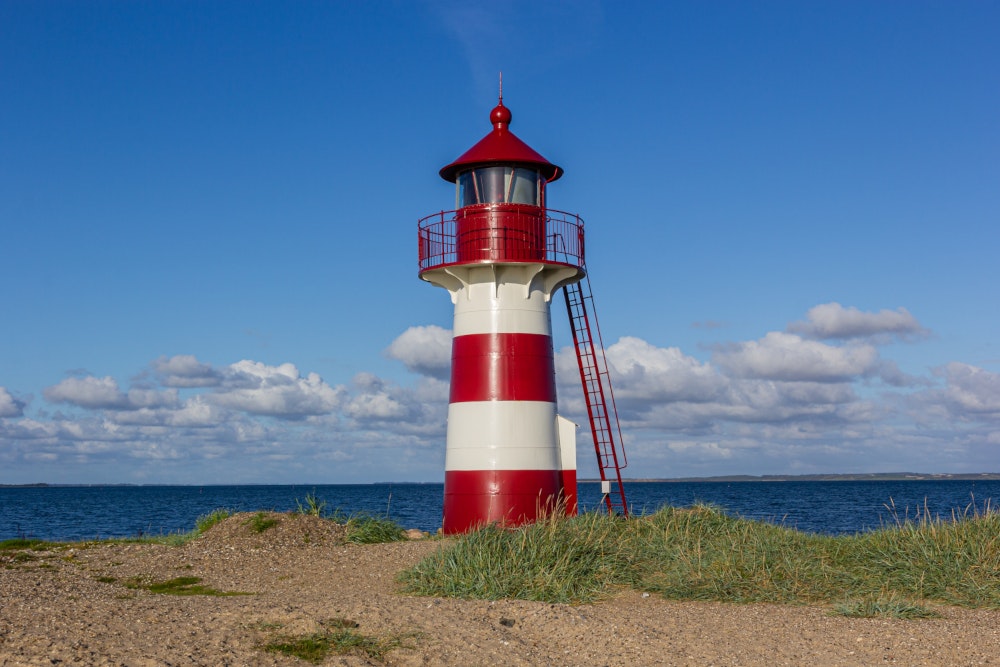
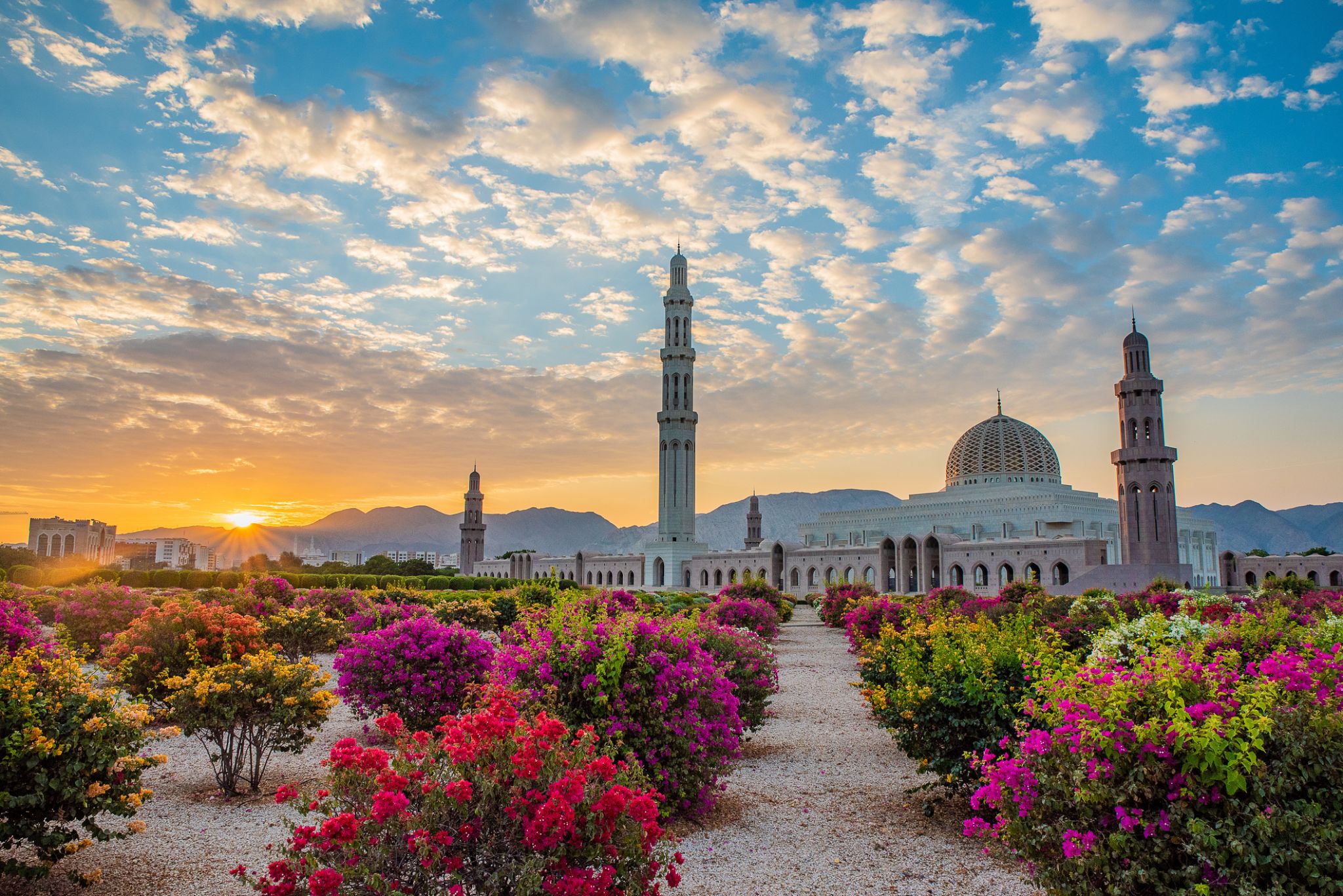
Muscat is the capital and largest city of Oman. It is the seat of the Governorate of Muscat. According to the National Centre for Statistics and Information (NCSI), the total population of Muscat Governorate reached 1.4 million as of September 2018. The metropolitan area spans approximately 3,500 km2 (1,400 sq mi) and includes six provinces called wilayats. Known since the early 1st century CE as an important trading port between the west and the east, Muscat was ruled by various indigenous tribes as well as foreign powers such as the Persians, the Portuguese Empire, the Iberian Union and the Ottoman Empire at various points in its history. A regional military power in the 18th century, Muscat's influence extended as far as East Africa and Zanzibar. As an important port-town in the Gulf of Oman, Muscat attracted foreign tradesmen and settlers such as the Persians and the Balochis. Since the ascension of Qaboos bin Said as Sultan of Oman in 1970, Muscat has experienced rapid infrastructural development that has led to the growth of a vibrant economy and a multi-ethnic society.


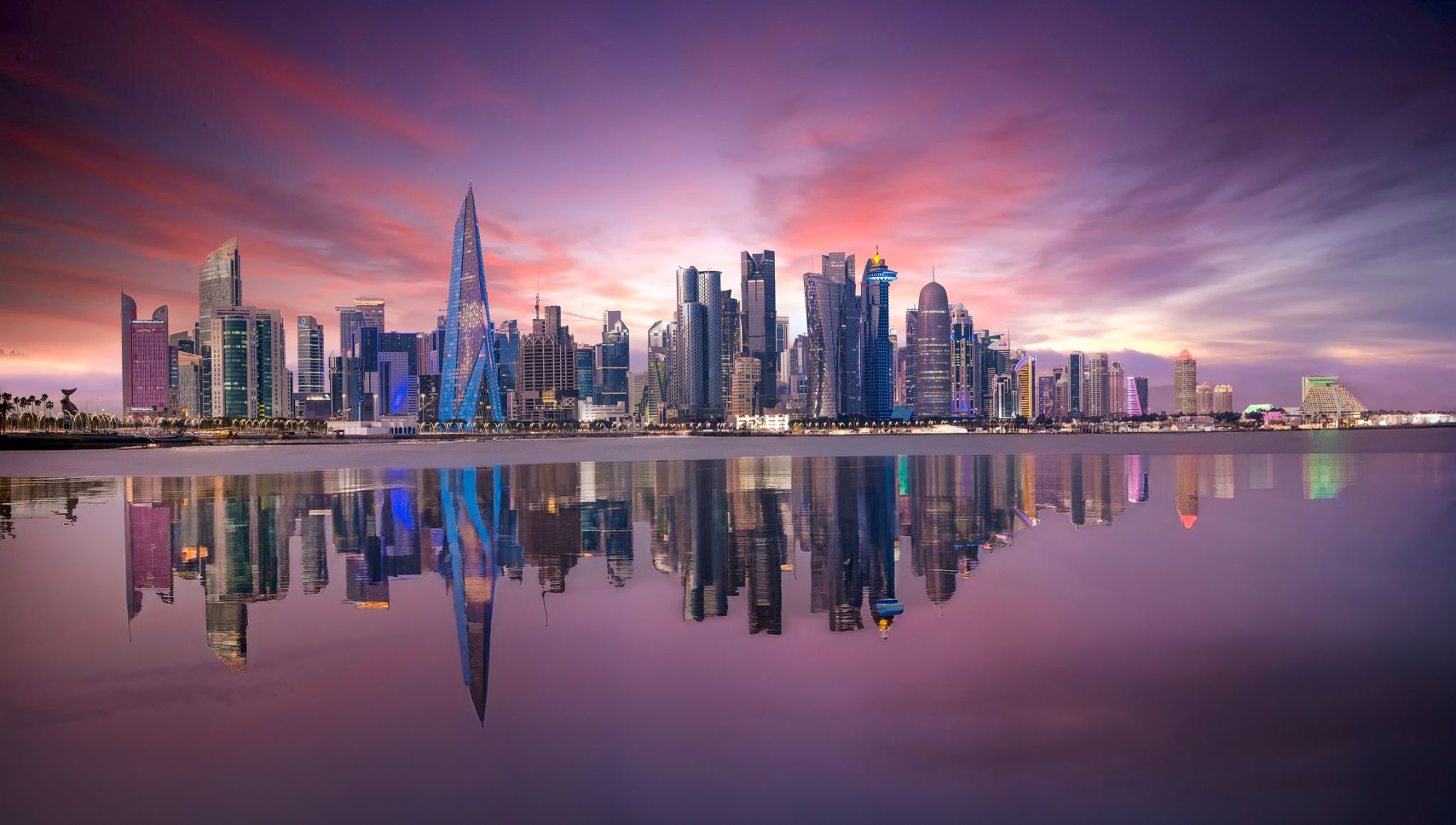
the capital of Qatar, in the eastern part of the country; pop 385,000 (est. 2007).
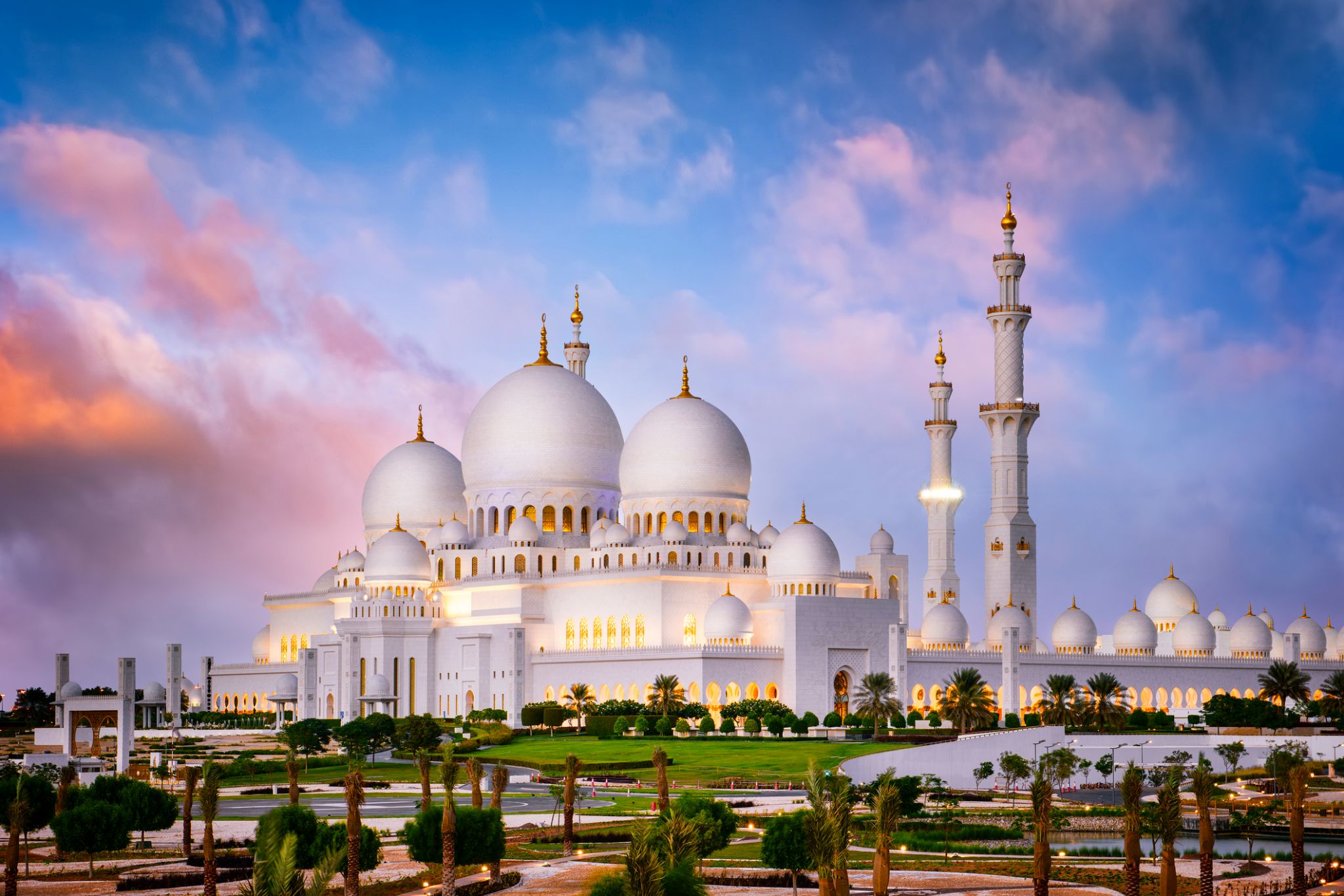
Abu Zabi jest stolicą i drugim co do wielkości miastem Zjednoczonych Emiratów Arabskich (najludniejszym jest Dubaj) oraz stolicą Emiratu Abu Zabi, największego z siedmiu emiratów UAE. Abu Zabi leży na wyspie w kształcie litery T, która wychodzi w Zatokę Perską z centralnego zachodniego wybrzeża. Miasto Abu Zabi miało szacowaną liczbę ludności 1,8 miliona w 2016 roku.
Abu Zabi mieści urzędy rządowe federalne, jest siedzibą Rządu Zjednoczonych Emiratów Arabskich, domem dla Rodziny Emira Abu Zabi oraz Prezydenta UAE, który pochodzi z tej rodziny. Szybki rozwój Abu Zabi i urbanizacja, w połączeniu z relatywnie wysokim średnim dochodem jego populacji, przekształciły miasto w dużą i zaawansowaną metropolię. Dziś miasto jest centrum politycznym i przemysłowym kraju, a także głównym ośrodkiem kulturalnym i handlowym, ze względu na swoją pozycję stolicy. Abu Zabi odpowiada za około dwie trzecie mniej więcej 400-miliardowej gospodarki Zjednoczonych Emiratów Arabskich.

Dubai is the largest and most populous cityin the United Arab Emirates (UAE). On the southeast coast of the Persian Gulf, it is the capital of the Emirate of Dubai, one of the seven emirates that make up the country.
Dubai is a global city and business hub of the Middle East. It is also a major global transport hub for passengers and cargo. Oil revenue helped accelerate the development of the city, which was already a major mercantile hub, but Dubai's oil reserves are limited and production levels are low: today, less than 5% of the emirate's revenue comes from oil. A growing centre for regional and international trade since the early 20th century, Dubai's economy today relies on revenues from trade, tourism, aviation, real estate, and financial services.
Dubai has attracted world attention through large construction projects and sports events, in particular the world's tallest building, the Burj Khalifa. As of 2012, Dubai was the most expensive city in the Middle East. In 2014, Dubai's hotel rooms were rated as the second most expensive in the world.